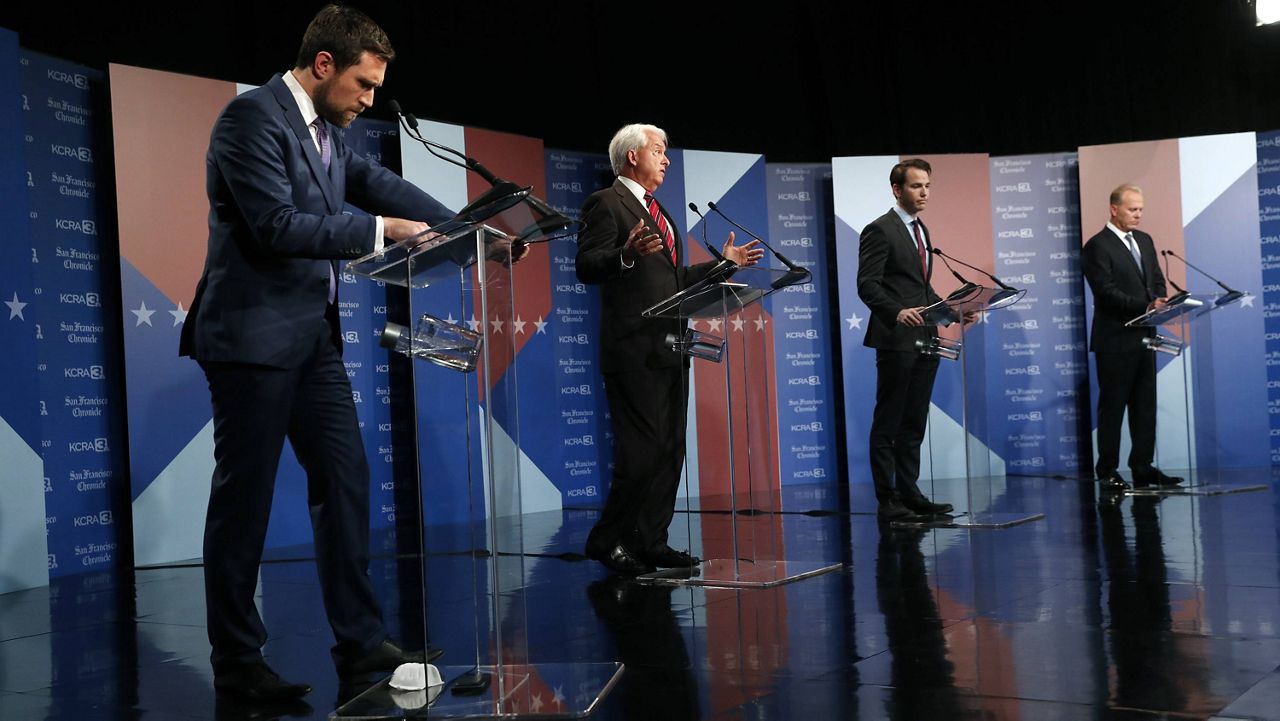LOS ANGELES (CNS) — A Los Angeles federal judge Friday denied a bid to have the gubernatorial recall election called off or the ballot drastically changed before the Sept. 14 deadline to cast votes.
The lawsuit on behalf of plaintiffs Rex Julian Beaber and A.W. Clark seeks a preliminary injunction to halt the recall election or — falling short of that — to add Gov. Gavin Newsom to the ballot as a candidate.
What You Need To Know
- The suit argues that the state's recall provision violates the equal protection clause of the U.S. Constitution by allowing sitting governors to be replaced by candidates who have received fewer votes
- Over 1 million ballots have been received by election officials
- In denying the motion to halt the election, U.S. District Judge Michael W. Fitzgerald wrote that there is "nothing unconstitutional about placing in one ballot a vote for or against the recall of the governor and then a vote for a replacement candidate"
- Newsom is not a party to the lawsuit
The suit argues that the state's recall provision violates the equal protection clause of the U.S. Constitution by allowing sitting governors to be replaced by candidates who have received fewer votes. Over 1 million ballots have been received by election officials.
In denying the motion to halt the election, U.S. District Judge Michael W. Fitzgerald wrote that there is "nothing unconstitutional about placing in one ballot a vote for or against the recall of the governor and then a vote for a replacement candidate."
Newsom is not a party to the lawsuit, which names Secretary of State Shirley Weber, who is conducting the recall election, as the sole defendant.
Fitzgerald, appointed to the federal bench by then-President Barack Obama, pointed out that the suit's late filing date of Aug. 13 means that the plaintiff — Beaber was voluntarily dismissed from the suit — seeks "to halt an election that, in fact, has already begun, which is a strong indicator that equitable factors are not present here. Finally, decisions of the Supreme Court and the Ninth Circuit strongly indicate that an injunction should not issue."
Clark argues in the suit that he, as a supporter of Newsom, only gets to vote once — a "no" vote on the question of whether there should be a recall election. Opponents of the governor, on the other hand, get to vote twice, first by voting in favor of the recall and then by voting for one of the replacement candidates, the plaintiff argues.
In his ruling, Fitzgerald wrote that "as a matter of logic and common sense, it simply is not true that plaintiff only gets to vote once while others get to vote twice. Plaintiff and all California voters have the opportunity to vote two distinct issues" — whether the governor should be recalled and for a replacement candidate.
The judge states that the plaintiff appears "disgruntled" that a replacement candidate with a small plurality might replace a sitting governor who, based on a robust "no" vote, might well have beaten that same replacement candidate in a general election.
"As that may be, such disgruntlement raises no federal constitutional issues and certainly does not give the federal judiciary the right to halt the mammoth undertaking of this gubernatorial recall election," Fitzgerald wrote.



